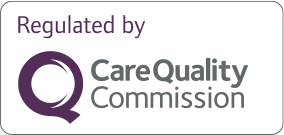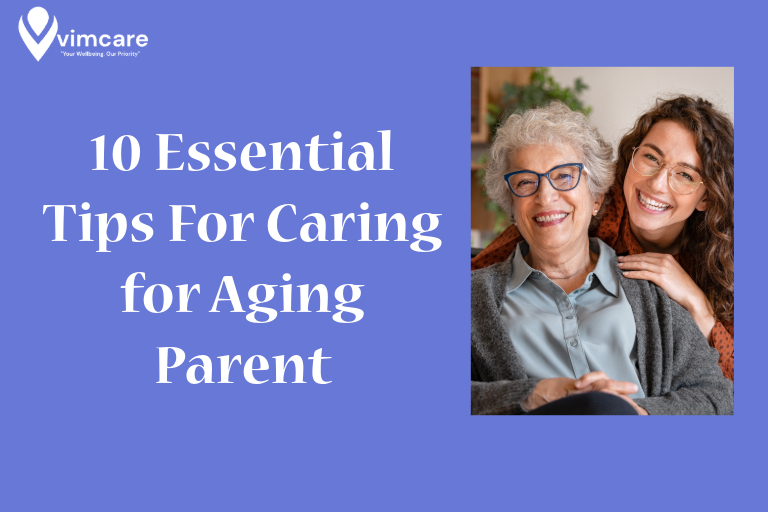10 Essential Tips for Caring for an Ageing Parent
Caring for an ageing parent can be both a rewarding and challenging experience. As our loved ones grow older, they may require additional support and attention, which can significantly impact family dynamics. To help you navigate this journey with confidence, here are ten essential tips for providing the best care for your ageing parent.
1. Start with Open Communication
Effective care begins with clear and honest communication. Discuss your parent’s needs, preferences, and any concerns they might have about their care. Open dialogue helps in understanding their expectations and ensures that everyone involved is on the same page. It also fosters a supportive environment where your parent feels heard and respected.
2. Understand Their Medical Needs
Familiarise yourself with your parent’s medical conditions and treatment plans. This includes understanding their medications, managing appointments, and being aware of any specific health requirements. Keeping a detailed record of their health information can be incredibly useful in coordinating care and ensuring their needs are met.
3. Prioritise Safety and Accessibility
Ensure that your parent’s living environment is safe and accessible. This may involve making modifications to their home, such as installing grab bars in the bathroom, ensuring proper lighting, and removing tripping hazards. A safe home environment reduces the risk of accidents and helps your parent feel more secure.
4. Encourage Independence
While providing support, it’s important to encourage your parent’s independence. Allow them to do as much for themselves as they can, which helps maintain their dignity and self-esteem. Offer assistance with tasks only when necessary, and involve them in decisions about their care to keep them engaged and empowered.
5. Seek Professional Support When Needed
There may come a time when you need additional help to provide the best care for your parent. Professional support, such as home health care services or a geriatric care manager, can offer specialised assistance and relieve some of the caregiving burden. Research local resources and organisations that can provide support and advice.
6. Manage Stress and Caregiver Burnout
Caring for an ageing parent can be emotionally and physically demanding. It’s essential to take care of yourself to prevent caregiver burnout. Make time for self-care, seek support from family or friends, and consider joining a caregiver support group. Taking care of your well-being helps you provide better care for your loved one.
7. Plan for Future Needs
Anticipate your parent’s future needs and plan accordingly. This includes discussing long-term care options, financial planning, and any legal matters such as power of attorney or advance directives. Planning ahead ensures that you’re prepared for changes and can make informed decisions about your parent’s care.
8. Foster Social Connections
Maintaining social connections is vital for your parent’s emotional health. Encourage them to stay engaged with friends, participate in community activities, or join social groups. Social interaction can help combat loneliness and provide a sense of purpose and enjoyment.
9. Stay Organised
Organisation is key to effective caregiving. Keep track of appointments, medications, and important documents. Utilising organisational tools, such as a caregiver journal or digital apps, can help manage tasks and stay on top of your parent’s care routine.
10. Be Patient and Empathetic
Lastly, approach caregiving with patience and empathy. Ageing can be a challenging experience, and your parent may have a range of emotions and needs. Showing compassion and understanding can strengthen your relationship and make the caregiving experience more positive for both of you.
Supporting Your Caregiving Journey
Caring for an ageing parent requires dedication and careful planning. By implementing these tips, you can provide effective and compassionate care while maintaining your own well-being.
For more insights and resources on caregiving and support services, exploring reputable sources can be valuable. Connecting with organisations that offer guidance and assistance can help enhance your caregiving experience and ensure you’re well-informed about available options.
If you’re interested in learning more about how professional support can make a difference in your caregiving journey, consider exploring our website for additional resources and information.
Looking for More Support and Resources?
At Vim Care Limited, we understand that navigating care options for your loved ones can be overwhelming. That’s why we’re here to offer even more valuable content to help you make informed decisions. Head over to our YouTube Channel for expert advice, practical tips, and resources tailored to your specific needs. Whether you’re exploring home care or just looking for answers, our channel has you covered.
Subscribe today and take the next step toward peace of mind and better care!
Accreditations and Who We Work With
Vim Care Limited is proudly registered with the Care Quality Commission (CQC) and works in partnership with Essex County Council and Thurrock Council. We adhere to the highest standards of care, ensuring the safety and well-being of our service users. Our commitment to excellence drives us to regularly review and improve our services, guaranteeing the best possible outcomes for our clients.




Haven't taken the Home Care Assessment yet?
Don’t miss out! In under 5 minutes, you can discover the perfect care solution for your loved one. Our free Home Care Assessment provides instant, personalised recommendations, and you’ll receive a free PDF report of your results. Whether it’s home care or a nursing home, get peace of mind with expert guidance today.
Book a Free 1 to 1 Consultation
Ready to arrange home care or just exploring your options?
We’re here to guide you every step of the way.
Choose a slot below to book your free 1-on-1 consultation.
If you’ve already taken our free assessment, we’ll review your results together. If not, you can choose a face-to-face or phone assessment to create a personalised care action plan tailored to your specific needs.



